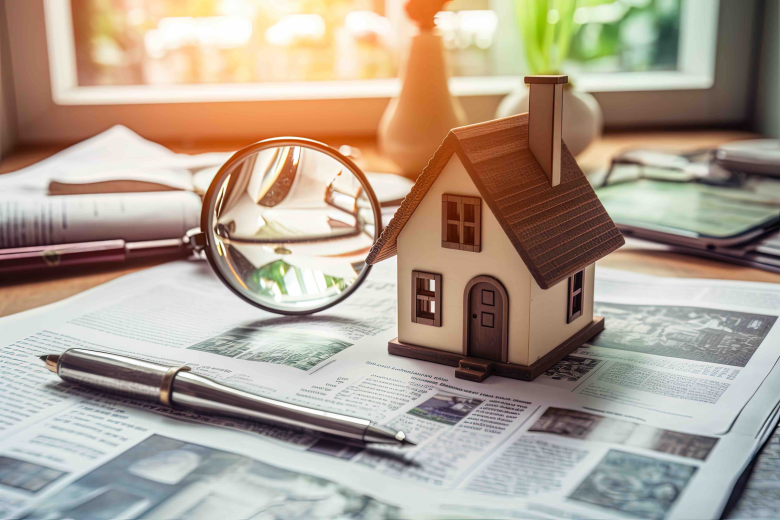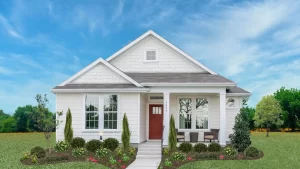Owning a rental property can be a great way to make money, but it also comes with certain obligations, especially when it comes to maintenance. A well-maintained home not only provides reliable tenants but also protects your investment in the long term. In this detailed guide, we’ll discuss some of the most important things you need to know about maintaining your rental property.
Conduct Regular Inspections
Effective property maintenance is based on regular inspections. Have a thorough inspection at least twice a year to catch problems before they get worse. Check pipes for leaks, electrical problems, and signs of wear. By catching problems early, you can fix them for less money and prevent bigger problems in the future.
HVAC System Maintenance
Heaters, air conditioners, and fans (HVAC) are important to keep tenants comfortable. Replace air filters regularly, clean ducts and have your HVAC system inspected by a professional. This not only ensures that your HVAC system is working optimally but also ensures that it lasts longer.
Take Care of the Landscape
The appearance is important, and a well-maintained garden is an important part of that. Keep your garden regularly mowed, your shrubs pruned, and any problems with your irrigation system resolved. A great exterior makes a great first impression on potential tenants and can even increase the value of your property.
Check the Pipes
Plumbing problems are one of the most common problems in rental properties. Regularly check for leaks, inspect the water tank, and ensure that it drains properly. By solving plumbing problems quickly, you can not only prevent water damage but also maintain the quality of life for your tenants.
Maintenance of Electrical Appliances
Appliances are very important for the functionality of your rental property. Regularly inspect and repair appliances such as refrigerators, ovens, and washing machines. Keeping machines in good condition can make tenants happier and reduce the chance of emergency repairs.
Safety Precautions
Install and maintain smoke detectors, carbon monoxide detectors, and fire extinguishers to ensure tenant safety. Please check these items regularly to ensure they are still valid. Also ensure that all entrances and exits are locked and for added security, consider installing security cameras.
Open Communication Channels with Tenants
Keep an open line of communication with your tenants in case they need help with maintenance. Have them report any issues immediately and ensure their concerns are addressed immediately. Clear contact between landlord and tenant is important to keep the home in good condition.
Develop a Maintenance Budget
Finally, set aside some rental income to pay for repairs and maintenance. Creating a budget allows you to quickly resolve issues without lowering the level of repairs. Proactive maintenance not only saves money, it also keeps tenants happy and keeps them coming back.
The Maintenance Costs are not High
When dealing with maintenance problems, it is important to find a solution that is both cheap and good. Check quotes from reputable contractors regularly and try to get a fair price. When you work with a service provider for the long term, you’ll likely get discounts and faster service, which will save you money in the long run.
Seasonal Maintenance
Taking care of your property can be difficult at different times of the year. To prevent your pipes from freezing in winter, first check your heating system and insulation. During the warmer months, you should focus on heating and cooling and pest removal. Seasonal maintenance can help ensure your home is ready for any weather.
Maintain Maintenance Records
Keep full records of all maintenance work you carry out. Keeping track of repairs, inspections, and improvements can not only help you keep track of your property’s history but also provide useful information to potential buyers or renters. A well-documented repair history can help increase a home’s resale value.
Energy-saving Upgrade
During maintenance, consider adding energy-saving upgrades. By switching to LED lighting, adding programmable thermostats, and improving insulation, you can not only reduce your energy costs but also make your home more attractive to tenants who care about the environment. Many changes that improve energy efficiency also come with tax breaks, saving you even more money.
Professional Property Management Services
Hiring a professional property management service is an option for property owners who may not have the time or skills to handle the care themselves. These people take care of routine maintenance, emergency repairs, and communication with tenants, so you can focus on the financial aspects of owning a home.
Tenant Training
Teach your tenants how to make simple repairs to their property. Give them a handbook of responsibilities, such as how to replace air filters, report leaks immediately, and use machinery with caution. Tenants who understand what’s going on are more likely to improve the overall health of the property.
Follow Local Rules and Laws
Follow your region’s rules for maintaining rental properties. It is important to follow construction rules and safety standards. Check regularly for changes in local law to ensure your property remains compliant with legal requirements. Failure to comply with the rules can lead to fines and legal problems.
Conclusion
All in all, properly maintaining a rental property is an ongoing process that requires hard work, planning, and conversations. By following the advice in this detailed guide, landlords can ensure that their rental properties are well-maintained and attractive, which not only meets the needs of their tenants but also ensures the long-term success of their investment. Remember that a well-cared-for home is more than just a place to live; It is an investment that will pay off in the coming years.
FAQs
1. How often should I inspect my property?
You should have your home thoroughly inspected at least twice a year. Regular inspections can help detect problems early, saving you money on repairs and protecting the overall health of your rental property.
2. What are some maintenance tips that don’t cost a lot of money?
You may want to consider getting competitive pricing from reputable contractors, building long-term relationships to get discounts, and making changes that use less energy. These ideas can help you accomplish your repair tasks without spending a lot of money.
3. How do you ensure that neighbors report maintenance problems immediately?
Encourage your neighbors to talk to you openly and honestly. Make it clear how important it is to inform them immediately of any problems, give them clear instructions, and resolve their concerns quickly. Tenants who have a good relationship with their landlord report problems more often.
4. Are there tax deductions for making changes that use less energy?
Yes, there are tax breaks for many changes that use less energy. Tax breaks may be available for installing LED lighting, programmable heaters, and better insulation. Contact your local government or tax advisor to find out what benefits are available.
5. Should I hire a company to manage my property?
Hiring a professional property management service can be helpful, especially if you don’t have the time or skills to handle the maintenance yourself. These services take care of daily tasks, emergency repairs, and tenant contact, so you can focus on other parts of owning a home.
6. How to register maintenance tasks effectively?
Complete documentation of all maintenance tasks such as upgrades, repairs, and inspections. These documents not only help track the history of the property but also provide useful information to potential buyers or renters.



